So you want to learn Poker?
(I posted this in April 2020, but my phase of non stop tournament poker I talk about in this post was in 2019.)
I was obsessed with Zynga Poker when I was in college. Every morning I would wake up excited, and then wait to receive the Zynga Poker briefcase, which would let me unlock more virtual coins. After years of playing offline (not regularly), I spent 6 months last year learning the game. I must have spent most of my waking minute, apart from work, on adda52.
Here is my guide on how to become a better Poker player
-
Start with understanding the math behind Poker. Mandatory read: Essential Poker Math - Alton Hardin. Can’t stress how important it is to start with the fundamentals.
-
Learn more poker theory, especially the fundamental theory of Poker from David Sklansky.
-
Proceed to learn how to play various Poker styles. Here is how you play a TAG game like Helmuth: Play Poker Like the Pros - Phil Hellmuth, another on Doyle Brunson’s style of play: Doyle Brunson’s Super System.
-
There are countless other books on: tournament play, cash games, micro stakes, high stakes. I read a bunch of these but ended up completing none when I realized that most of these were written way back, and are no longer relevant for the current tournament scene.
-
There are 2 different schools of Poker: One is Game Theory Optimal, while the other is Exploitative Strategy. One relies on Game Theory while the other is around exploiting opponents. The best players play a mixed strategy.
-
Complete these masterclasses: Daniel Negreanu Teaches Poker & Phil Ivey Teaches Poker Strategy.
-
The masterclass by Negreanu is really good, and my fortunes on the Poker table changed thanks to incorporating his insights in my tournament play. I highly recommend it. Ivey’s is a little more advanced and something I would recommend once you master the basics.
-
One of the main aspects of playing Poker is mastering the mental side: Avoiding tilt, learning from your mistakes, realizing that the Gita teaching “karm kar without focussing on results” is true both in Poker and in life. For this, I recommend reading: The Mental Game of Poker - Barry Carter, Jared Tendler.
-
Bad beats will happen. That is part of the game. But you can’t change your strategy based on how the last hands went. AA shove might run into a J2 flush and lose out. Does not mean that it was a bad play. Believe in the math. Believe in your own strategy. I also read Blackrain79’s Massive Profit at the Micros.
-
If you are a beginner you need to track your performances and see how you are faring. Here are 3 sheets I maintained.
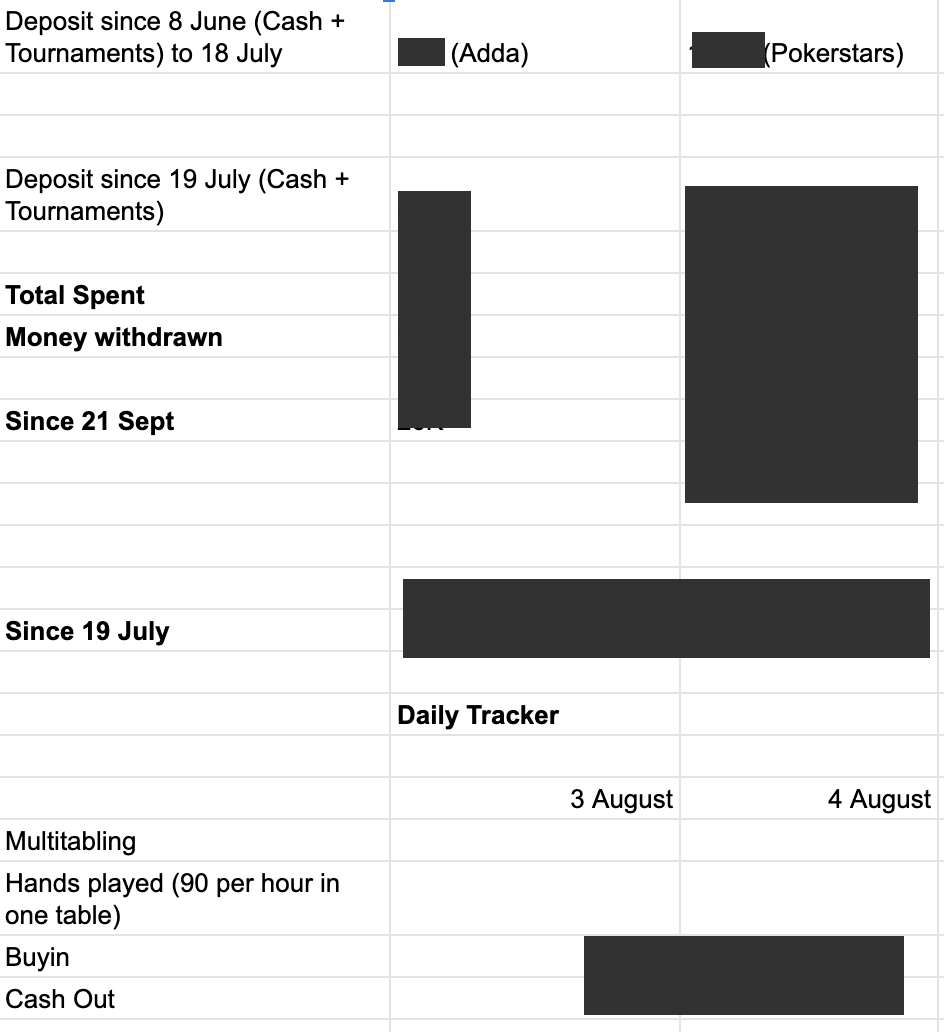
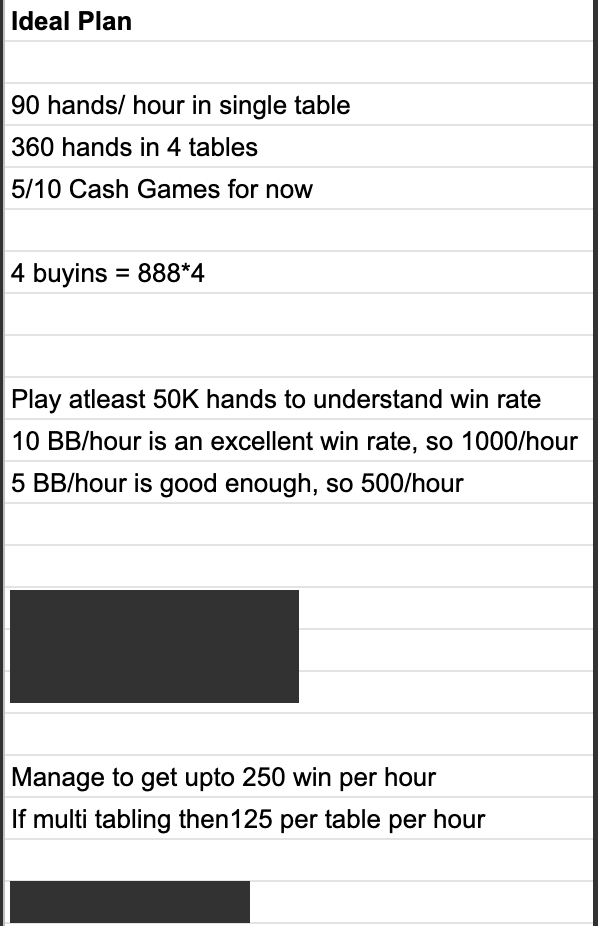

Once I improved, I did stop measuring at this level. But this is something you need to do for the first few months for sure.
- After each bad beat, each hand where I learned something new, I added to this note.
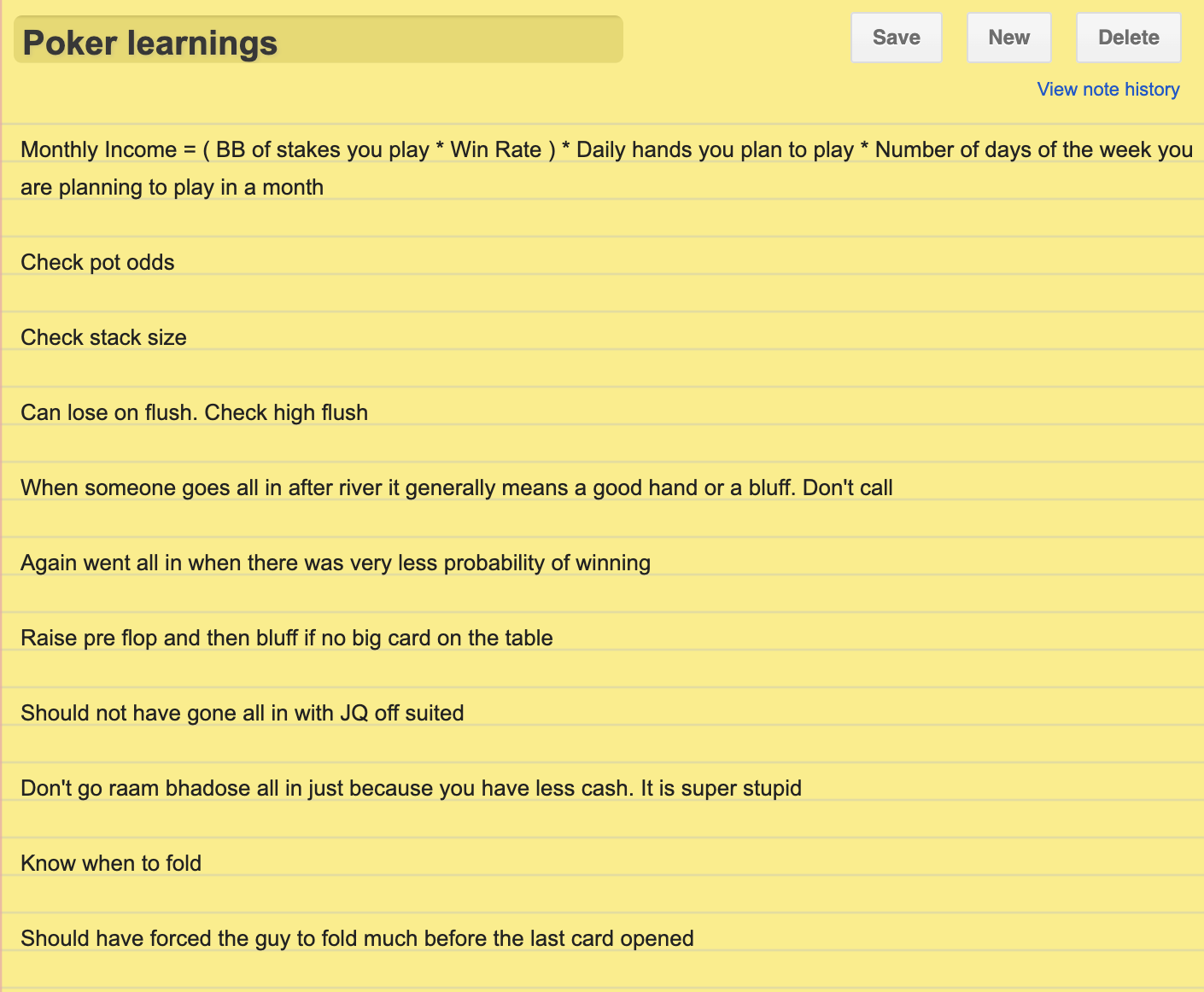
I learn everything the same way. Doing. Measuring. Iterating.
Also making tons of mistakes :)
- I also had a note with how I went out in all the tournaments I played so that I don’t keep making the same mistakes.
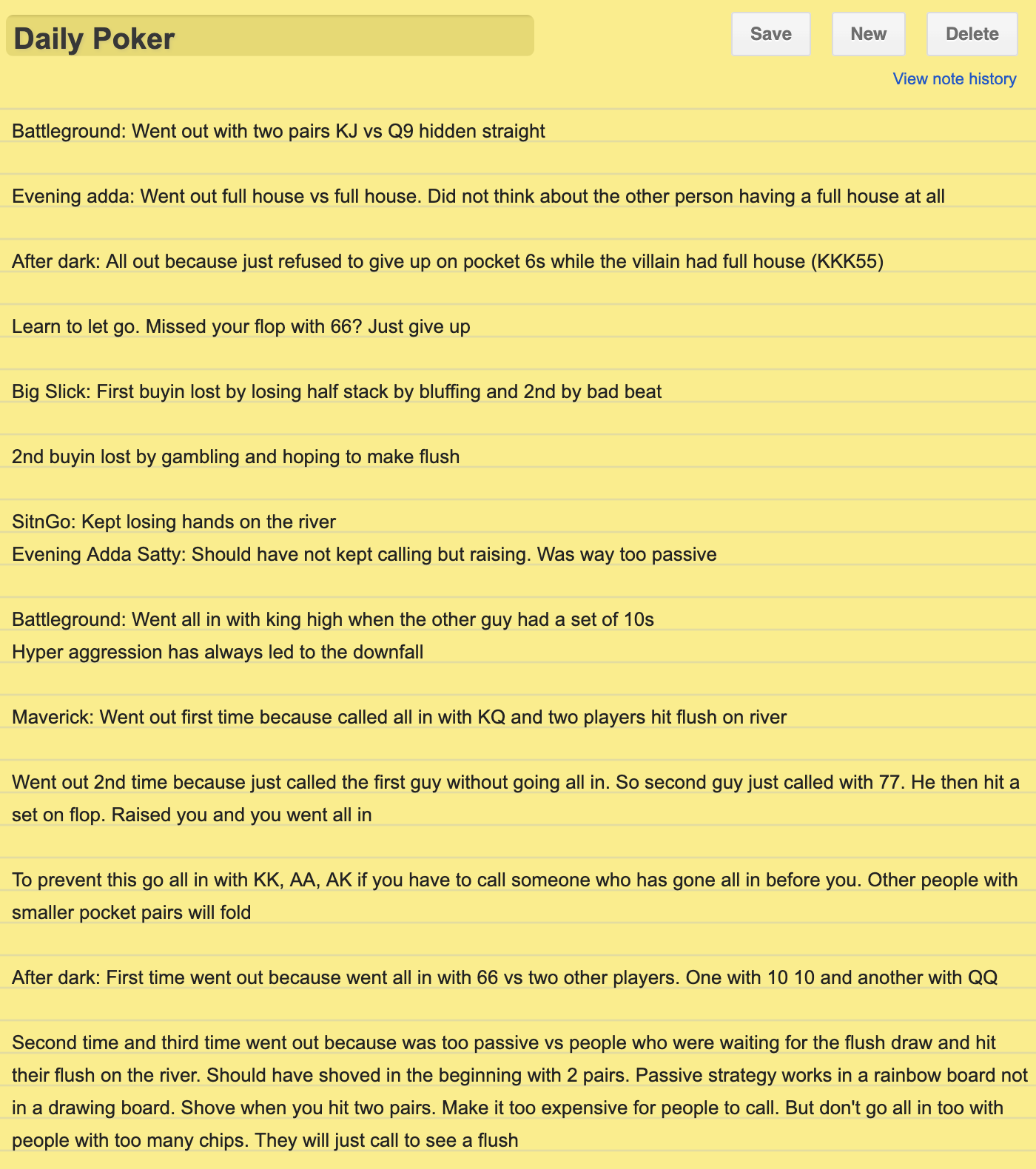
- Take loads of notes. Taking notes, and learning through a tight feedback loop is how I learn most things. You can see notes taken from various books, as well as blogs I read on Poker below.
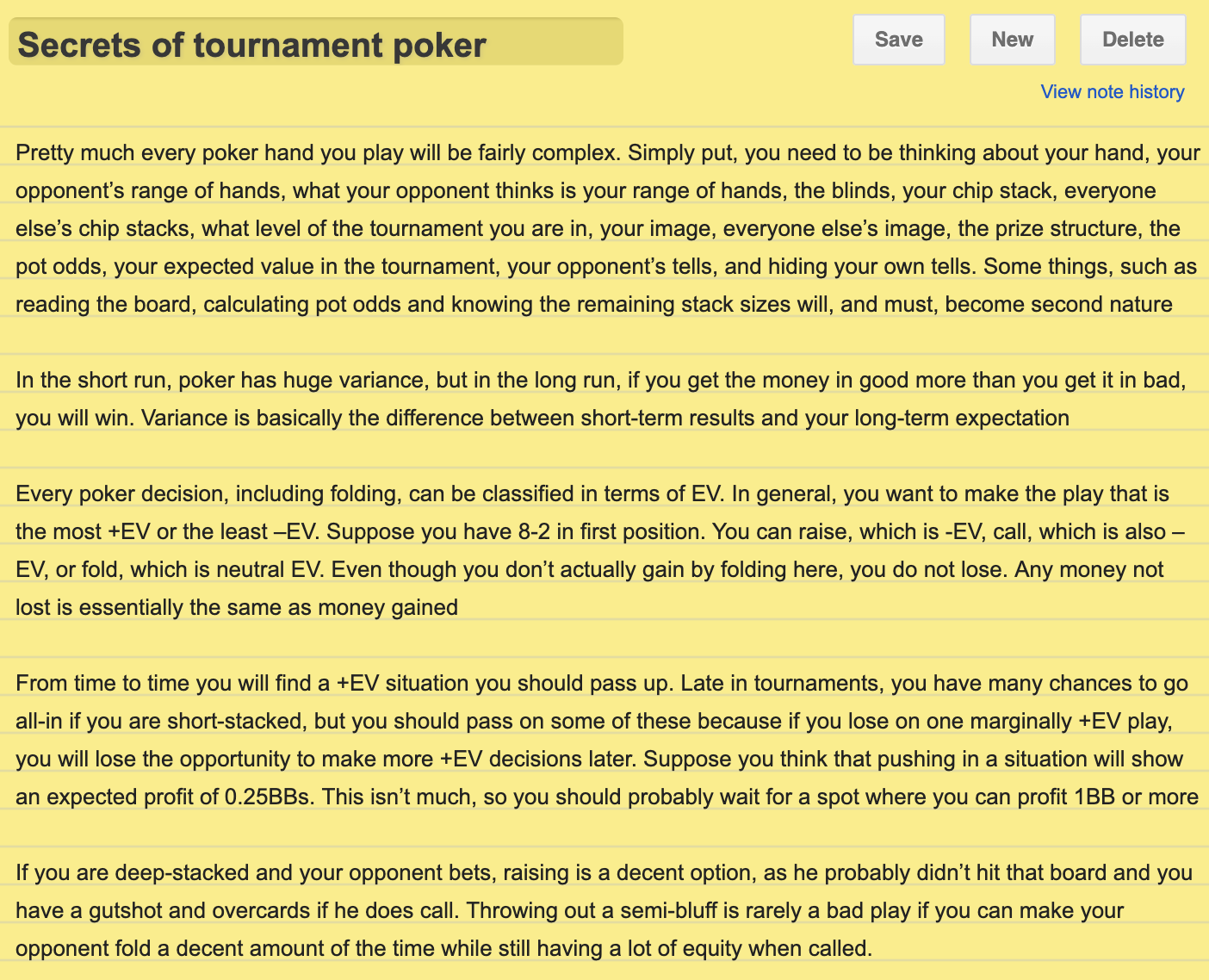
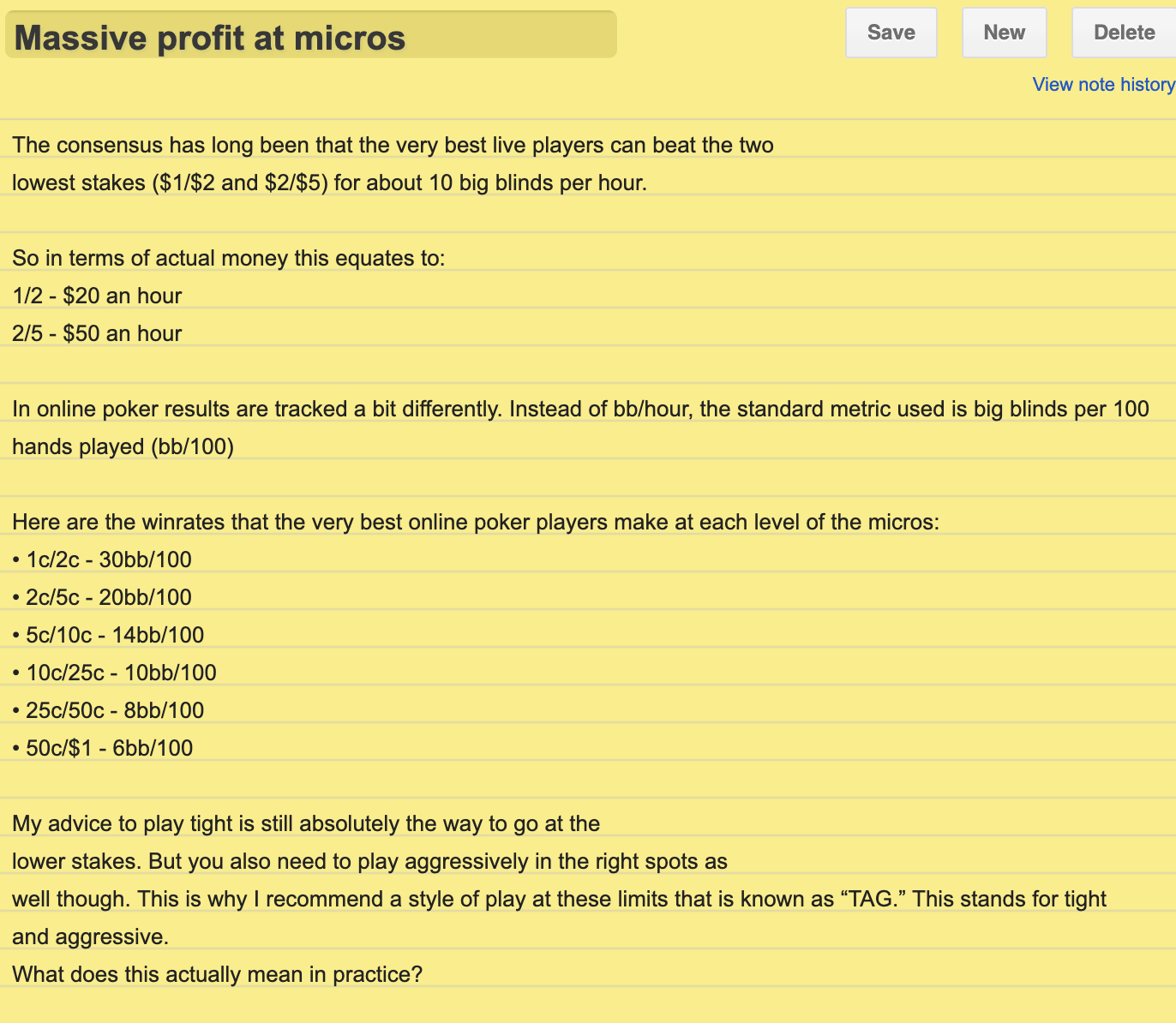
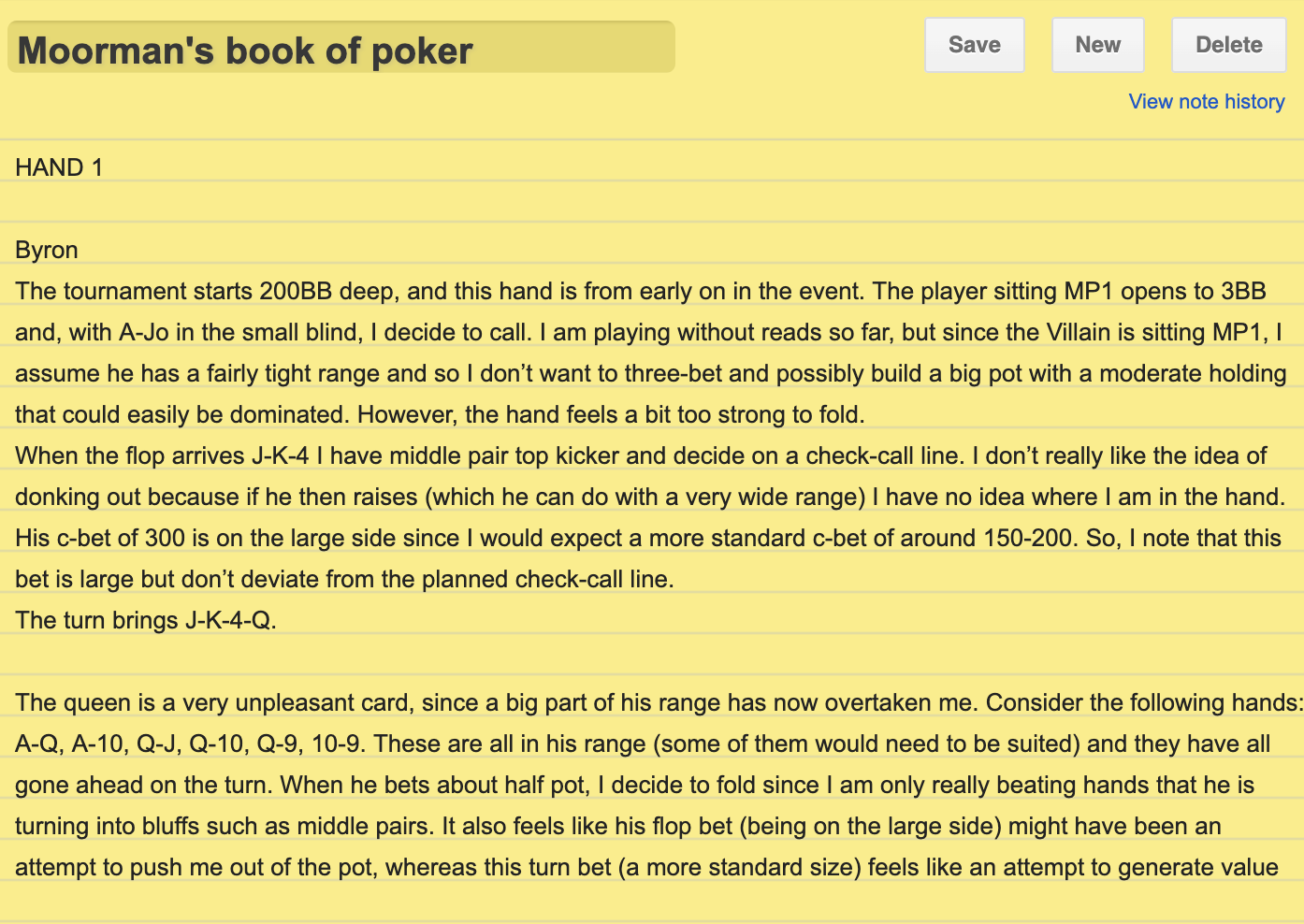
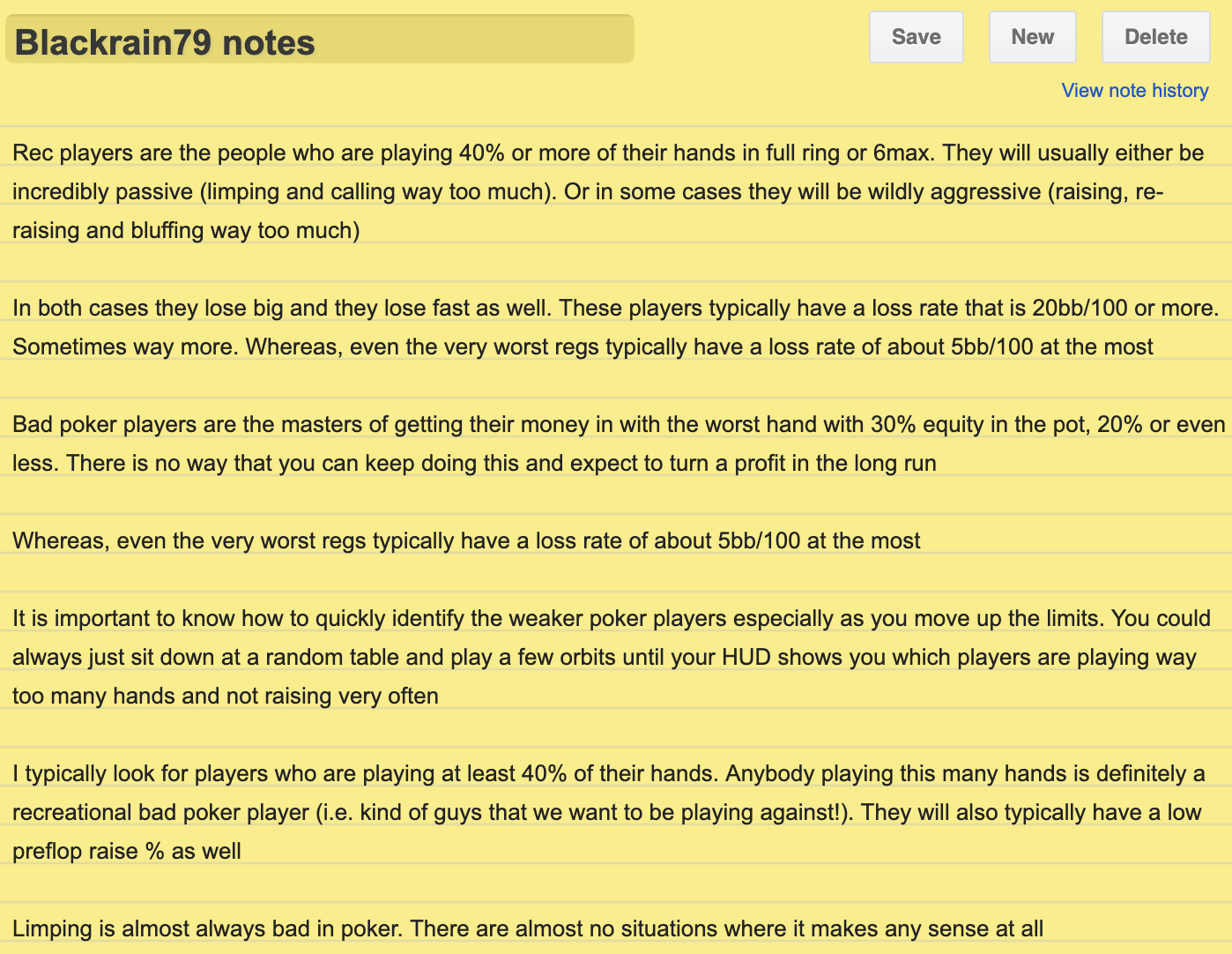
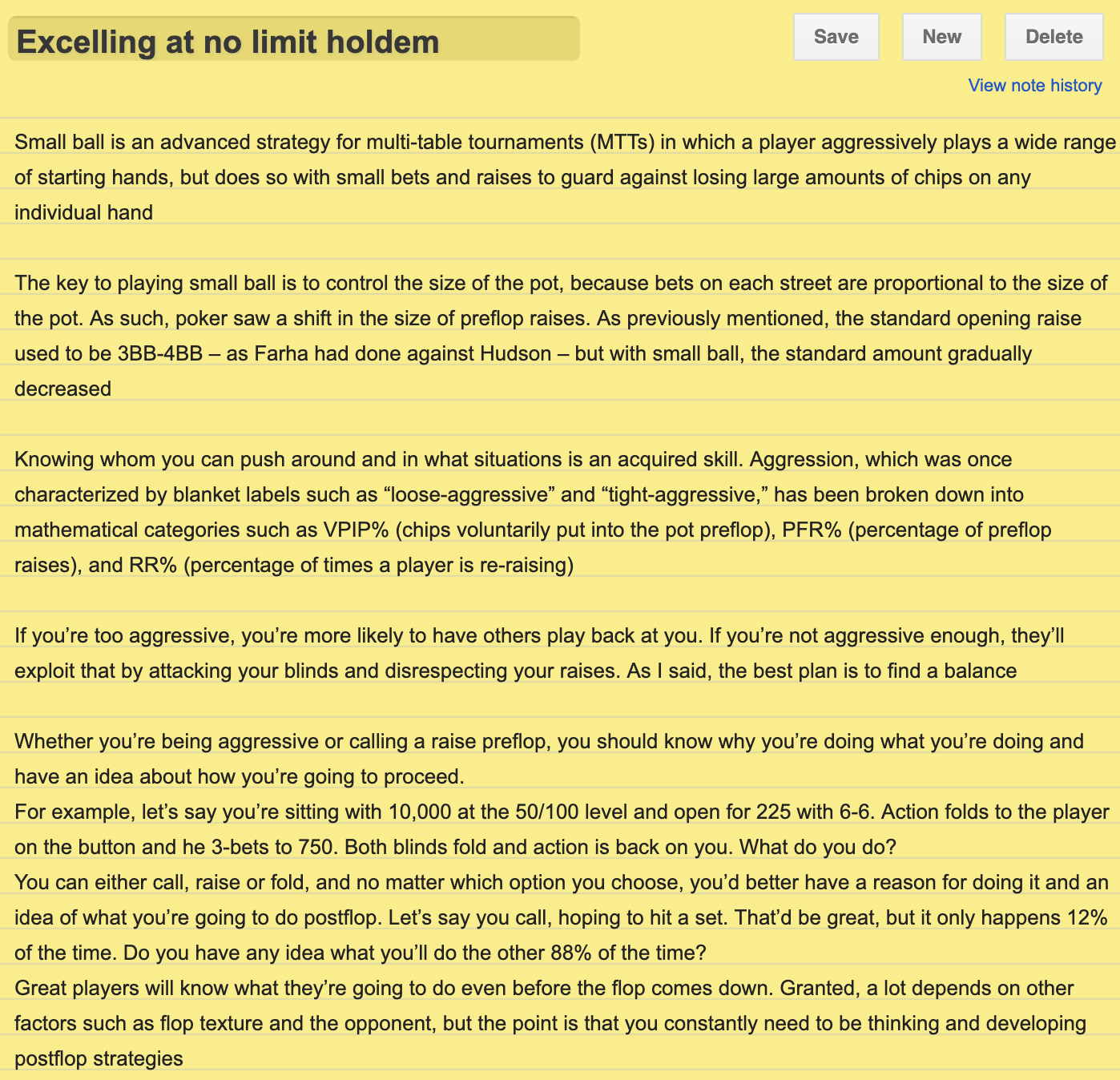
-
Apart from things mentioned above, I also watched 100s of hours of Twitch streams, 100s of hours of Youtube videos of tournament play, as I had decided to focus more on Tournaments instead of Cash games. The entire recommended section on my Youtube Home was Poker videos.
-
It is all about putting in the hours. For these 6 months, Poker had become like a 2nd full-time job. I spent 6-10 hours every day on Poker. It was all I did after coming back from Office, as well as during weekends when I had more free time.
It requires a lot of effort to be good at something.
- Finally, you have to be willing to make sacrifices. Thankfully my amazing girl friend (now wife) supported me, was okay with me spending so many hours on it, and even consoled me when I had bad beats.
Hope this was useful.
Update: I recently read The Biggest Bluff: How I Learned to Pay Attention, Master Myself, and Win by Maria Konnikova and loved it.